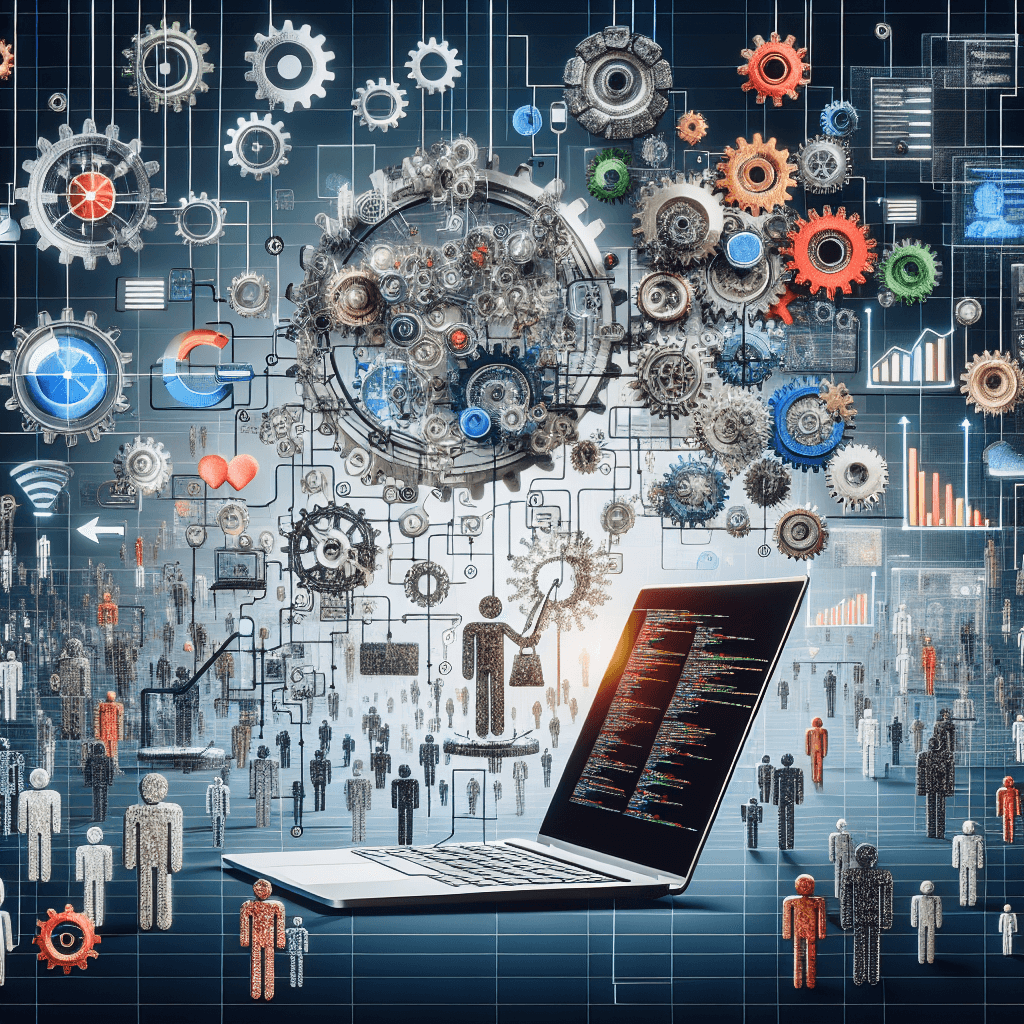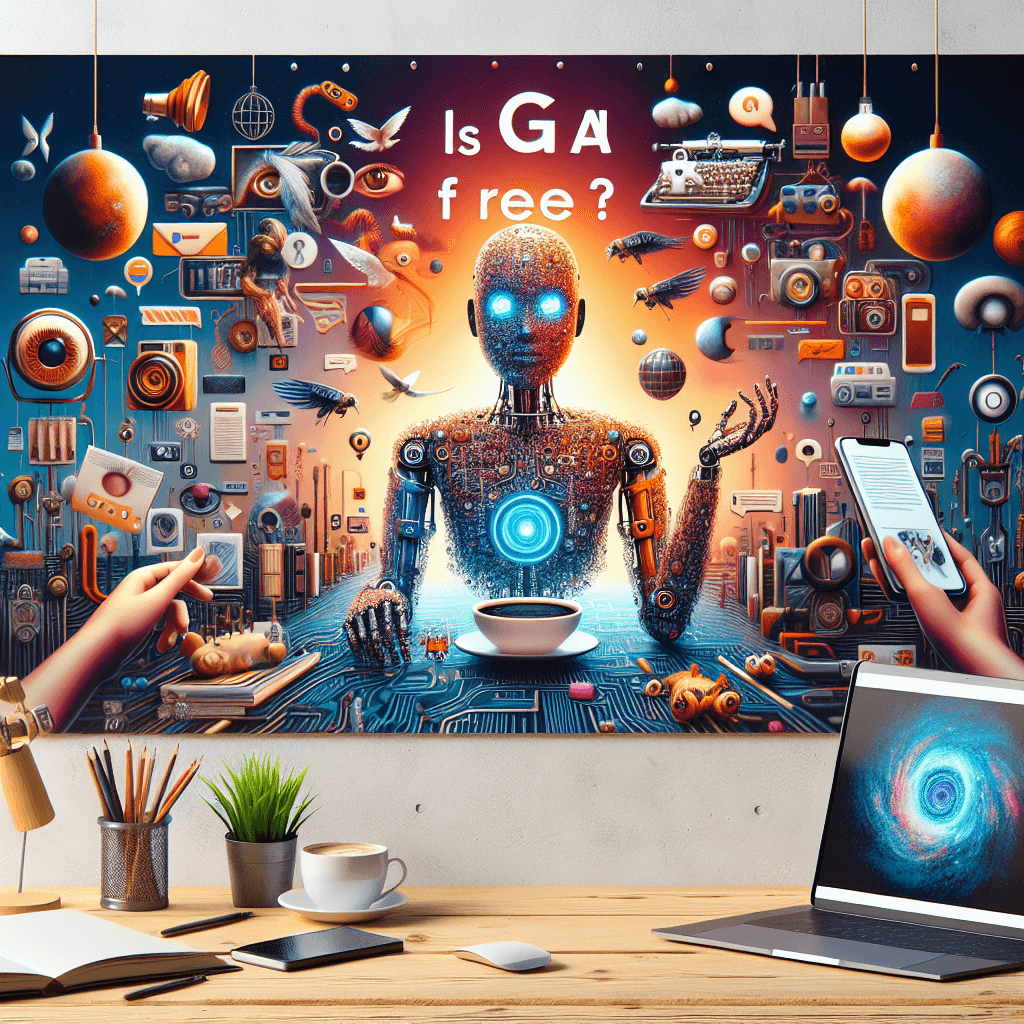Introduction
In a world where technology is stepping into the shoes of many traditional roles, one question looms large: Can AI truly be trusted? As artificial intelligence (AI) integrates deeper into our daily lives, its reliability has become a focal point for businesses and individuals alike. Picture AI as a new player in a game of chess, making calculated moves alongside seasoned players. But can this new player, albeit artificial, be trusted to follow the rules and make the right calls? Join us as we unravel the layers of AI trustworthiness, its implications in industries such as marketing, and what the future holds for this powerful technology.
- The Evolution of AI and Trust
- AI in Marketing: Friend or Foe?
- The Human-AI Collaboration
- The Ethical Dilemma
- Key Takeaways
- FAQs
- Conclusion
The Evolution of AI and Trust
Artificial Intelligence has evolved from a theoretical concept to a dynamic force reshaping industries worldwide. However, like a double-edged sword, while AI offers immense potential, it also brings forth questions about its trustworthiness. From self-driving cars to digital assistants, AI systems are now tasked with decisions that were once solely human. Could these systems, driven by algorithms, harbor biases or errors? This transition from human to machine raises concerns about the accuracy and reliability of AI-driven processes.
Historical Context of AI Trust Issues
Throughout history, new technologies have faced skepticism. The same holds true for AI. As early as the 20th century, humans have questioned the reliability of machines taking over tasks traditionally performed by humans. The key to understanding AI’s trustworthiness lies in its transparency and accountability.
AI in Marketing: Friend or Foe?
Marketing has not been immune to the AI revolution. With capabilities ranging from personalized recommendations to predictive analytics, AI promises efficiency and innovation. Yet, marketers are left pondering: Will AI lead to the end of marketing jobs? Or can it be harnessed as a valuable tool?
Advantages of AI in Marketing
- Personalization: AI allows for highly personalized marketing strategies, targeting consumers based on their unique preferences.
- Efficiency: Automating routine tasks frees up marketers to focus on strategy and creativity.
- Data Insights: AI analyzes vast amounts of data quickly, providing insights that would take humans much longer to discern.
The Concerns
Despite its benefits, AI in marketing is not without its drawbacks. Concerns about data privacy and the ethical use of consumer information remain at the forefront. Furthermore, there’s fear that AI could replace human interaction entirely, losing the personal touch that many consumers value.
The Human-AI Collaboration
The future may not be about man versus machine but rather man and machine working harmoniously together. Imagine AI as a skilled co-pilot, assisting the human pilot in navigating through complex airspace. This synergy between humans and AI can lead to enhanced productivity and innovation across industries.
AI’s Role in Team Dynamics
AI can augment human capabilities by handling repetitive tasks and allowing professionals to focus on strategic decision-making. In fields like sales, AI-driven tools can revolutionize the sales process, enabling salespeople to engage more effectively with clients.
The Ethical Dilemma
Trust in AI extends beyond technical reliability to ethical considerations. How should AI make decisions when faced with moral dilemmas? When should an AI system disclose its identity? These questions are central to building trust in AI technologies.
Ensuring Ethical AI Development
To ensure ethical AI development, transparency must be prioritized. Implementing clear guidelines and regulations will help safeguard against misuse. Organizations like the Google’s research team are pioneering efforts to create ethical standards for AI systems.
Key Takeaways
- AI has transformed various industries but poses trust challenges due to its complexity and potential biases.
- In marketing, AI offers personalization but raises concerns about job displacement and data privacy.
- Collaborative approaches between humans and AI can leverage strengths from both sides for optimal outcomes.
- Ethical considerations are paramount in gaining public trust in AI technologies.
FAQs
Can AI be completely unbiased?
No, since AI learns from data influenced by human biases, it’s challenging to eliminate bias entirely. Continuous monitoring and updating of algorithms are essential for minimizing bias.
How can businesses ensure their AI systems are trustworthy?
By prioritizing transparency, implementing ethical guidelines, and fostering human oversight over AI processes, businesses can enhance trust in their AI systems.
Conclusion
The journey to trusting AI is like navigating a winding road; progress is made one step at a time. While challenges persist, opportunities abound for those willing to embrace this technology responsibly. As we move forward, the question isn’t just whether we can trust AI—but how we can build AI that earns our trust.
If you wish to explore further on related topics like limits of liability and warranty disclaimers, feel free to dive into more resources available.


